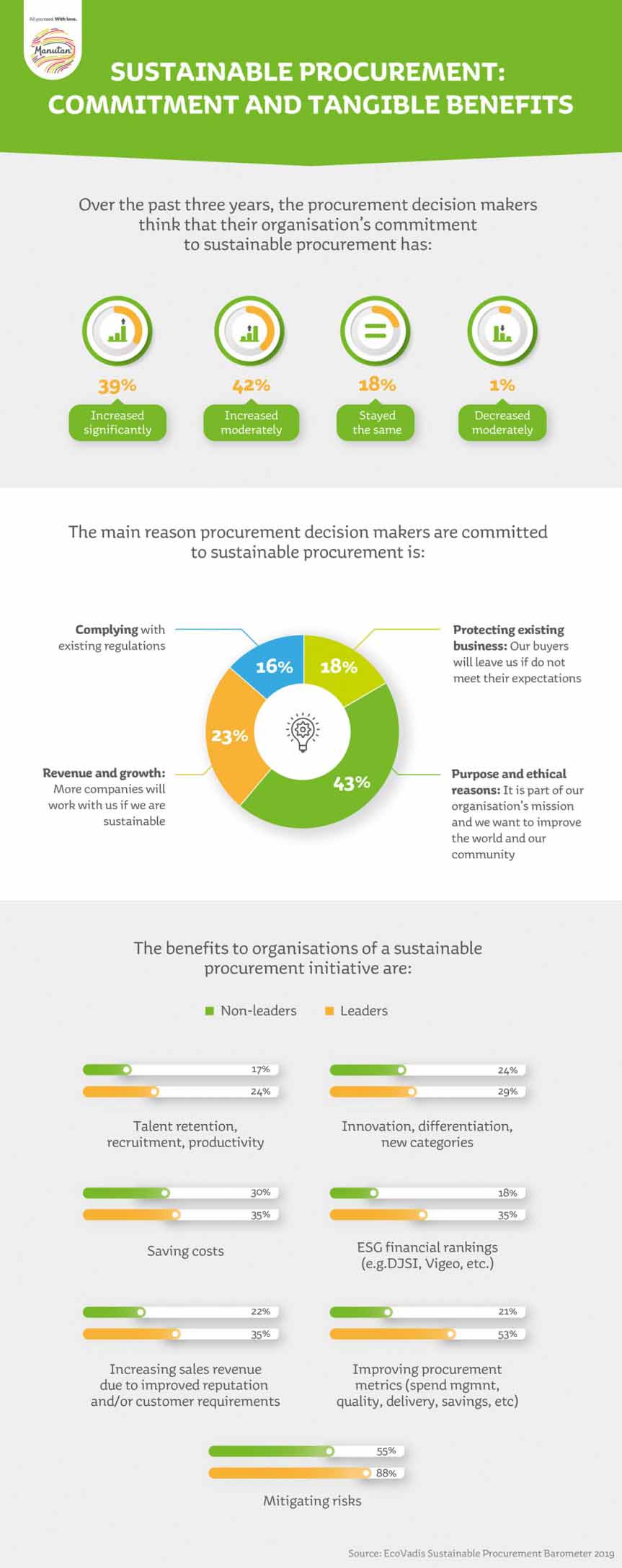Increasingly tight regulations and pressure from various stakeholders have made sustainable procurement a hot topic for companies, on both the buying and the supply side of operations. The EcoVadis[1] Sustainable Procurement Barometer 2019 examines the current state of sustainable procurement within global companies and highlights how they benefit from it.

Sustainable procurement: A real commitment
Global companies are increasingly committed to sustainable procurement, which is particularly relevant in terms of the major challenges facing procurement departments (regulatory compliance, risks and costs). By way of proof, 81% of companies interviewed for the barometer say that their company's commitment to sustainable procurement has increased over the past three years.
Where suppliers are concerned, ethical considerations are the main motivating factor. Almost half of suppliers who are committed to a sustainable procurement approach are thinking not just of their mission statement, but also of improving the world and their community. Others, of course, remain more pragmatic and undertake this commitment for financial reasons, to survive or to become more compliant.
As you will know, over the years, sustainable procurement has become a major challenge in the economic landscape.
The seven main benefits of sustainable procurement
Although it is not easy to measure the returns on investment of a sustainable procurement approach, the companies interviewed in this study agreed on a set of concrete benefits:
1. Better risk control, which addresses one of the main priorities for procurement departments.
2. Reduced costs, which addresses another of the top priorities for procurement departments.
3. Fostering innovation and differentiation through new products or services.
4. Increased turnover, whether this is linked to the company's reputation or its commitment to alignment with customers' new ethical, social and environmental requirements.
5. Improved procurement indicators relating to management of expenditure, quality and deliveries.
6. Improved non-financial ratings: including the Dow Jones Sustainability Index and Vigeo ratings.
7. Improved talent acquisition and retention.
These benefits are all the more striking among companies that are considered "mature" when it comes to sustainable procurement. In fact, 88% (compared to 55% of "non-mature" companies) cite risk reduction as a major benefit. Similarly, 53% (compared to 21% of "non-mature" companies) identified improved procurement indicators as another key advantage. This is clearly a significant difference!
To go along with the barometer, EcoVadis has developed a fun tool for assessing the maturity of a company in terms of sustainable procurement. Want to give it a go? Click here.
[1] A global platform for providing business sustainability ratings and collaborative CSR performance improvement tools







